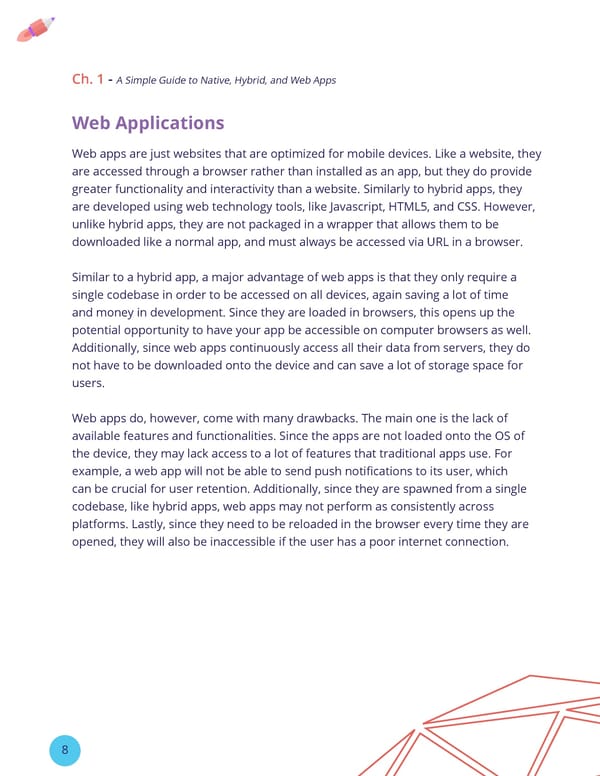Ch. 1 - A Simple Guide to Native, Hybrid, and Web Apps Web Applications Web apps are just websites that are optimized for mobile devices. Like a website, they are accessed through a browser rather than installed as an app, but they do provide greater functionality and interactivity than a website. Similarly to hybrid apps, they are developed using web technology tools, like Javascript, HTML5, and CSS. However, unlike hybrid apps, they are not packaged in a wrapper that allows them to be downloaded like a normal app, and must always be accessed via URL in a browser. Similar to a hybrid app, a major advantage of web apps is that they only require a single codebase in order to be accessed on all devices, again saving a lot of time and money in development. Since they are loaded in browsers, this opens up the potential opportunity to have your app be accessible on computer browsers as well. Additionally, since web apps continuously access all their data from servers, they do not have to be downloaded onto the device and can save a lot of storage space for users. Web apps do, however, come with many drawbacks. The main one is the lack of available features and functionalities. Since the apps are not loaded onto the OS of the device, they may lack access to a lot of features that traditional apps use. For example, a web app will not be able to send push notifications to its user, which can be crucial for user retention. Additionally, since they are spawned from a single codebase, like hybrid apps, web apps may not perform as consistently across platforms. Lastly, since they need to be reloaded in the browser every time they are opened, they will also be inaccessible if the user has a poor internet connection. 8
 The Non-Technical Founder's Guide to Building an App | CrowdBotics Page 7 Page 9
The Non-Technical Founder's Guide to Building an App | CrowdBotics Page 7 Page 9